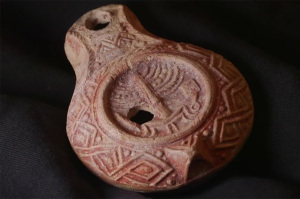The Culture War is Over: We Lost!
I have come to face this possibility along with its implications, most recently while reading the new book by David Kinnaman and Gabe Lyons entitled unChristian: What a New Generation Really Thinks About Christianity … and Why it Matters. In the book, Jud Wilhite, a pastor in Las Vegas says just that, "In Las Vegas, where I live, the culture war is over. We lost. Let me repeat: WE LOST. Now our calling is to love and accept people one-on-one, caring for them where they are. Our role is subversive as we carry the light and love of Jesus into the casinos, clubs, and streets of our city." (Kinnaman & Lyons, unChristian, Baker Books, 2007, p. 62)
A recent conversation on the subject of cloning with my good friend, a philosophy professor, further underscores the moral and cultural defeat of the Church in the West. My friend, who must remain anonymous due to the risk of exposure as a Christian, which would likely cost him tenure, also teaches medical ethics at a major medical school. He points out, radical new frontiers are being explored and old moral and ethical boundaries are being challenged and/or obliterated almost daily within the field of medical science. He argues that modern science is rapidly moving beyond therapy and treatment to "enhancement" and the alteration of human nature itself. He adds that scientific progress into the morally ambiguous areas of human cloning, nanobiotechnology, and neurosciences has achieved such a level that any hope of stopping it at this point is nearly futile.
What he, like the pastor from Las Vegas, argues for is that the current conditions are such that the Church cannot remain in the simple posture of opposition to these issues. The time for preliminary debate has passed and the Christian philosophical contribution was either absent or under-represented. Thus, a new strategy must be considered if we want to have any participation in the discussion from this point forward. Otherwise, we simply will not have a place at the table.
Clearly, we have seen what seems to be the perpetual erosion of morality and ethics in this culture. Roe v. Wade has been the law of the land for more than 30 years now and while abortions are down and opposition to abortion is on the increase, there still seems to be little political or popular will to once-again criminalize abortion. Homosexuality is for the most part widely accepted and if the attitudes of the next generation remain as they are; the present opposition to same-sex marriage will not remain much longer. A higher percentage of children than ever are being born out-of-wedlock in this country and the future of traditional marriage is in grave doubt.
Add to this the growing anti-Christian spirit—much of which emanates from the public battles over these very issues, i.e. the culture wars—and the hope of Christian cultural transformation seems bleak to say the least. More importantly, our present approach to cultural engagement may be hindering the greater mission of Church. Suffice it to say that these factors have caused me to wrestle deeply with my own life and ministry. Am I doing the right thing in the right way? Does what I am doing draw people toward Christ or push them away?
It is not that I am giving up, certainly not! It is merely that I want to understand how best to engage the culture. The world is changing and so much of our current approach may rest on the idea that there still remains a Christian consensus on morality and ethics—that the Christian interpretation of reality is still welcome in the public square. Generally speaking, I am not sure this is the case today. Granted there are "pockets" of Christian consensus but the halls of power and the commanding heights of culture appear generally and emphatically unChristian in their philosophy. If that is true, then we must consider the changing cultural context and adjust our approach to cultural engagement.
I am not suggesting compromise of any kind. I am merely suggesting that the current cultural conditions may be closer to those of the early Church than our grandparents. Our brothers and sisters in the first and second centuries did not labor under a "christianized" culture—quite the contrary—and yet their testimony transformed the world.
They did not mobilize politically, they couldn't. They had no voice in government. They did not control the educational institutions of their day. Information was strictly controlled by the Roman authorities and any opposing perspectives were quickly and decisively crushed. The moral and ethical consensus was in stark contrast to Christian virtues. Culturally speaking, the Roman world was brutal and completely lacking in compassion. There was nothing socially conducive to the Church and her mission in the world. Sound familiar?
Nonetheless, our first and second century brothers and sisters "lived such good lives" that the unbelieving world could not help but take notice. In the book of Acts we are given some insight into the life and impact of the early Church. What we see is a picture of a "new" people that stood out from the rest of the world and what distinguished them first was their love for one another. They reflected something unprecedented in the Roman world: real and authentic community where people were caring for others and they were of "one heart and soul." From there this love spread to those outside the faith as the Lord "added to their number day by day." By contrast, we often appear indifferent, judgmental, radically individualized and intractably divided.
I believe we must continue to speak truth to the culture, especially while we still can. Justin Martyr, the first Christian apologist, labored to commend the Christian faith to the second century Roman authorities, which ultimately cost him his life. However, I also think the present conditions necessitate new ways of thinking if we hope to preserve the opportunity to share the story of Jesus.
In other words, I don't want to be identified by what I am against but rather what I am for: the kingdom of Christ. I want my apologetic efforts to point people to Christ and not merely the preservation of Christian morality. Preserving Christian morality and ethics will not necessarily lead to Christian conversions but conversion to Christianity will most assuredly lead to true
________________________________________________
S. Michael Craven is the President of the Center for Christ & Culture, a ministry of discipleship and Church renewal that works to equip Christians with an intelligent, thoroughly Christian and missional approach to culture. For more information on the Center for Christ & Culture, additional resources, and other works by S. Michael Craven visit: www.battlefortruth.org





























